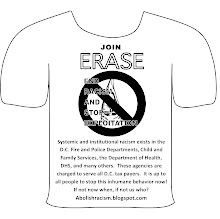Black Like Me by John Howard Griffin, is "a history-making classic about crossing the color line in the Segregated South."
The Deep South of the late 1950s was another country: a land of lynchings, segregated lunch counters, whites-only restrooms, and a color line etched in blood across Louisiana, Mississippi, Alabama, and Georgia. White journalist John Howard Griffin, working for the black-owned magazine Sepia, decided to cross that line. Using medication that darkened his skin to deep brown, he exchanged his privileged life as a Southern white man for the disenfranchised world of an unemployed black man.
What happened to John Howard Griffin - from the outside and within himself - as he made his way through the segregated Deep South is recorded in this searing work of nonfiction. Educated and soft-spoken, John Howard Griffin changed only the color of his skin. It was enough to make him hated... enough to nearly get him killed. His audacious, still chillingly relevant eyewitness history is a work about race and humanity every American must read.
John Griffin wrote this book in the early 60s and published it in 1962. He later wrote an epilogue on his thoughts, entitled: What's Happened since Black Like Me:
"The experiment that led to writing Black Like Me was done at the very end of 1959, before the first "freedom rides" or any other manifestation of national concern about racisl injustice. It was undertaken to discover if America was involved in the practice of racism against black Americans. Most white Americans denied any taint of racism and really believed that in this land we judged every man by his qualities as a human individual. In those days, any mention of racism brought to the public's mind the Nazi suppression of Jewish people, the concentration camps, the gas chambers - and certainly, we protested, we were not like that.
If we could not accept our somewhat different practice of racist suppression of black Americans, how could we ever hope to correct it? Our experience with the Nazis had shown one thing: where racism is practiced, it damages the whole community, not just the victim group....
Were we racists or were we not? That was the important thing to discover. Black men told me that the only way a white man could hope to understand anything about this reality was to wake up some morning in a black man's skin. I decided to try this in order to test this one thing. In order to make the test, I would alter my pigment and shave my head, but change nothing else... "
The Spook read this book nearly 40 years ago. Yet, racism at this same level exists in the Fire Department, the Police Department, the law firms, hospitals and in varied other DC institutions harbored by some white people even today. Racism, sexism and other negative 'isms' are mostly supported by a capitalist economic system that is based on exploitation and supported by its actions to divide and conquer on the basis of class, race and sex, to name a few areas. The Spook commends this book to your attention and reminds you, that To Change Things we must learn things; and to learn things we must change everything.
Allegations of Racism in DC Fire Department: May 1st Rally
Elevate-The-Soul Online Radio (Rick Tingling-Clemmons Interview on Racism Included)
Allegations of Racism in DC Fire Department-An Update
Allegations of Racism in DC Fire Department-Feb Part1
Allegations of Racism in DC Fire Department-Feb - Part 2
Thursday, March 19, 2009
Subscribe to:
Post Comments (Atom)
Bottom Line

Nothing Less






2 comments:
Thank you for introducing this book to me. I will surely read into it. Keep up the fight and spreading the knowledge.
hello... hapi blogging... have a nice day! just visiting here....
Post a Comment